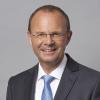It doesn’t work without foreign doctors

Mr. Engehausen, what role do foreign doctors play in the Bavarian clinics?
Roland Engehausen: The number of foreign doctors in Bavaria is increasing, we are now at almost 7,000. 15 percent of doctors at the clinics in the Free State have a foreign national. This number has doubled within the past ten years and it may well be that it will continue to increase in the next few years also as a result of the hospital reform.
Is you – keyword a shortage of doctors – dependent on these doctors from abroad?
Engehausen: Just as we are doing medicine at the moment and how the hospital reform is set up: yes. Interestingly, it is different from care. Especially in the rural area, we have a defect that young people study at the universities of big cities want to stay in the metropolitan areas. Care is exactly the other way around. So we cannot say that for example in Munich are dependent on doctors on abroad. But the more rural it becomes.
What about the recognition? Are the hurdles up?
Engehausen: The hurdles are indeed high. And the examination in the recognition process is also very complex. This is easier in nursing, there are not several responsibilities, everything is bundled at the State Office for Nursing, which works very well. For the doctors, we have a complicated procedure about the respective district government with different responsibilities and with the involvement of the Bavarian State Medical Association, which is also correct. But I hope that we will become even faster in the procedures, there should be a certain bundling. But what you have to say: it has to be examined very thoroughly, after all, we do not want someone to work as a doctor with fake qualification evidence in Germany or Bavaria. The exams within the EU are comparatively simple, but it looks different for people who come here as refugees. But as I said: We must not deviate from the demands we have.
What role does language play? Again and again patients report that they have problems understanding the doctor in the clinic because he speaks broken German …
Engehausen: Good knowledge of German must be available for recognition. But there is a special feature, which is why patients repeatedly speak to the fact that they have problems with understanding. There is the opportunity to work for foreign doctors to work with a professional license. This authorizes the temporary exercise of the profession in Germany, so it is a kind of intermediate permit with some restrictions. And there it is the case that no high voice requirements still have to be met. But I think that’s a good compromise. A doctor from the Ukraine Not to let work and send it to a language course would not be good, otherwise you will get out of professional practice.
Which countries do most foreign doctors come from?
Engehausen: Most doctors come from Austria to Bavaria. Romania is in second place. Then come Syria and Serbia. Russia and Ukraine are in fifth and sixth place.
Why do so many doctors come to Germany from Austria?
Engehausen: There is no numerus clausus in Austria, there is a lot more trained there.
In which disciplines is there a lack of doctors where one could benefit from foreign doctors?
Engehausen: At the moment it is the case that it too few general practitioners and internists. Of course, these are the two biggest subjects. In addition, it is striking that there is a lack of doctors in psychiatry, as well as anesthesia, occupational medicine and gynecology. A lot will change with the hospital reform.
To what extent?
Engehausen: The specialist evidence rate, i.e. the number of doctors you need on paper, increases in individual special subjects. This creates personnel requirements, especially in small performance areas such as nephrology or endocrinology, which we cannot meet in Germany. And the new government will have to clarify relatively quickly whether it adjusts these requirements. But if you stay with the high number, it will lead to us to have to get doctors from abroad in these special subjects.
To person: Roland Engehausen has been the managing director of the Bavarian Hospital Society since the end of 2020.
Photo: Bavarian hospital society





:format(webp)/s3/static.nrc.nl/images/gn4/stripped/data133011479-281992.jpg)


